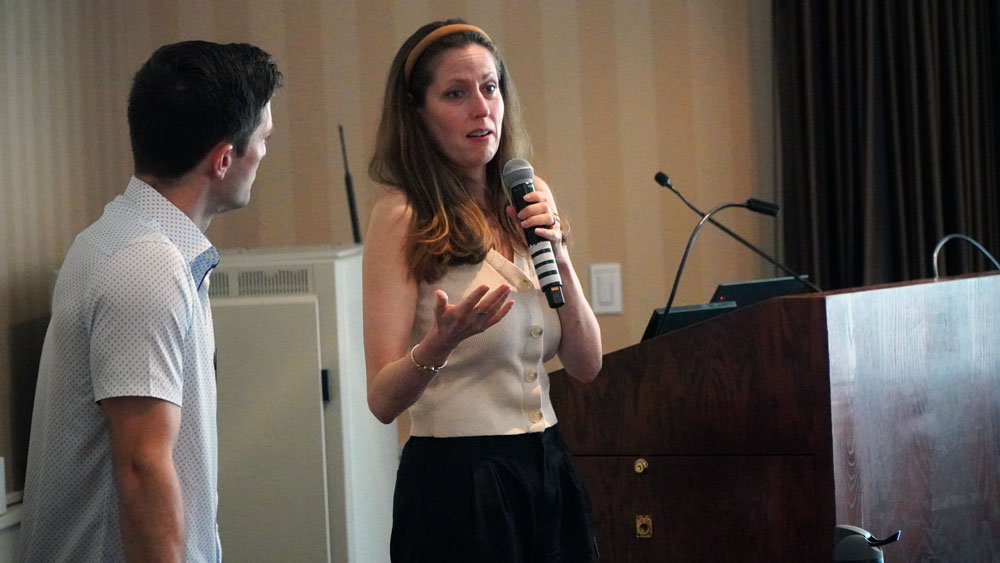Research and Assessment

The Program’s research and assessment teams evaluate evaluate the impact of programming and courses at Wake Forest and beyond. By collecting data on participation and outcomes for students and faculty who engage with the Program, we are able to understand what approaches to character development are most effective and where we can improve.
Summary
College
Our college-focused team utilizes mixed methods assessments to explore the impact of our courses, discussion groups, retreats, Scholars programming, LEAP pre-orientation programming and faculty course development workshops. In 2024 we created our course data repository, compiled of data from all of the courses we have assessed since our beginning. This database includes:
● More than 700,000 data points
● More than 1,400 participants
● Data from over 70 curricular courses
The data indicates that our programming has a positive impact on our students. Across our courses within a range of different disciplines such as computer science, humanities, and entrepreneurship, we have observed increases in a variety of virtues, as well as students’ sense of purpose, wellbeing, and use of moral exemplars, to name a few.
Professional Schools
In the first few years since the Professional Schools program expanded in 2022, assessment has primarily been focused on formative learning for programming improvement and gaining deeper insights into what research methods and tools best serve our goals and capture impact. We conduct a range of mixed-methods assessments within Law, Pre-Law, Medicine, and Engineering courses as well as for other programming such as undergraduate Pre-Law and Pre-Health advising, the Medical School CPPD coaching program, the Leadership and Character in the Law Cohort, and programs implemented by the Character in Medicine grantees at School of Medicine. In 2024, we also began building a longitudinal database to track impact over time. Outcomes of interest vary greatly across courses and programs and range from well-being measures to ethical decision-making, to self-reported character virtue growth. In 2025, we will begin to more formally explore development and assessment of students’ leadership and its relationship to character.
Research Team at Wake Forest
College



Professional Schools



ECI Research Team
The Educating Character Initiative’s Research Team is in charge of understanding, evaluating, and learning from our work (grantee projects, trainings, and more); building and pursuing dynamic, interdisciplinary models of assessment and measurement in character education that transcend silos in favor of character in context; engaging in landscape analysis on character efforts across US colleges and universities; publishing scholarly work in the field; and designing and implementing ECI community-anchored research, such as communities of practice / affinity groups.




Juliette Ratchford
Senior Research Fellow
Publications from our Staff
We continue to publish peer-reviewed academic journal articles demonstrating the impact of our work at the Program for Leadership and Character and seek to further the field of character education. Since 2020, we have produced more than 145 publications—including articles, chapters, and books—which have further established our reputation as a leading center for research and programming on leadership and character.
In 2024, several research articles were published on our empirical data. One recent paper recently published in the Journal of College and Character demonstrates how our course development workshop increases faculty’s understanding of character education and their ability to implement character development strategies in their pedagogy. This year we also published our new “Moral Role Models Scale” in the Journal of Moral Education. The validated scale measures an individual’s engagement with moral exemplars. A further paper published in the International Journal of Educational Research demonstrates the connection between engaging with moral exemplars and developing a higher sense of purpose.
